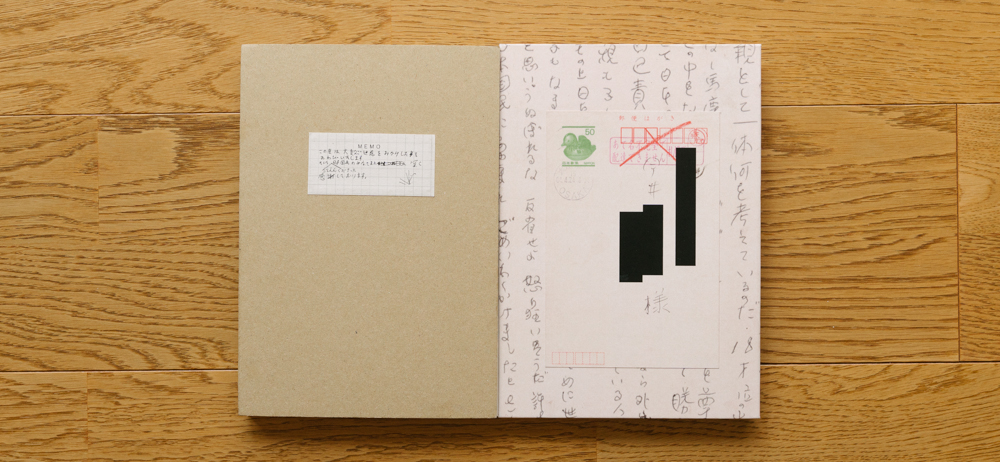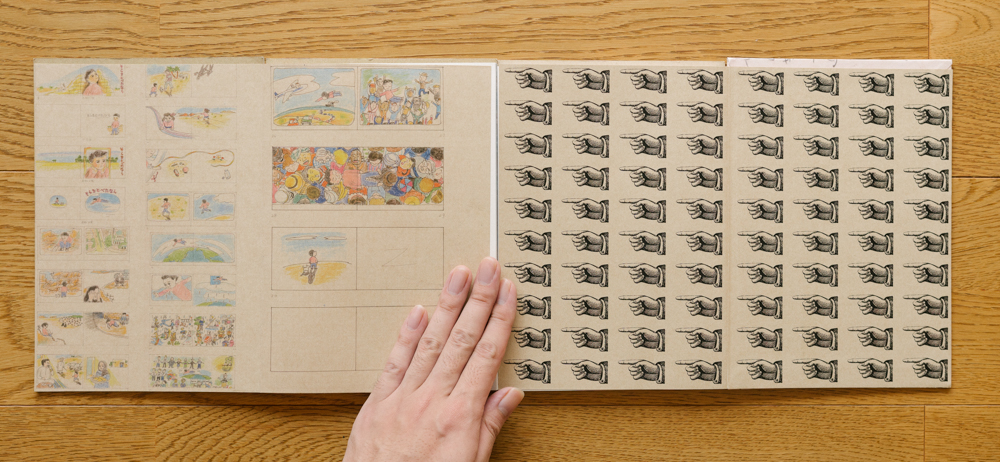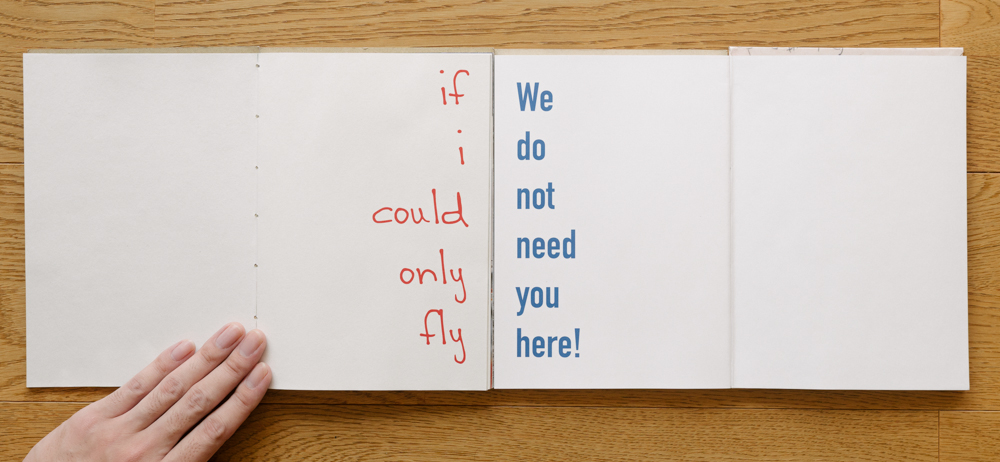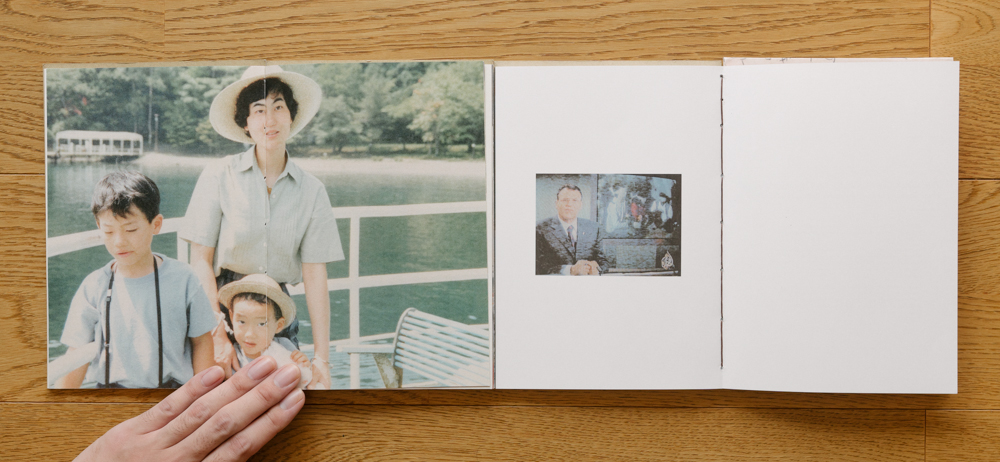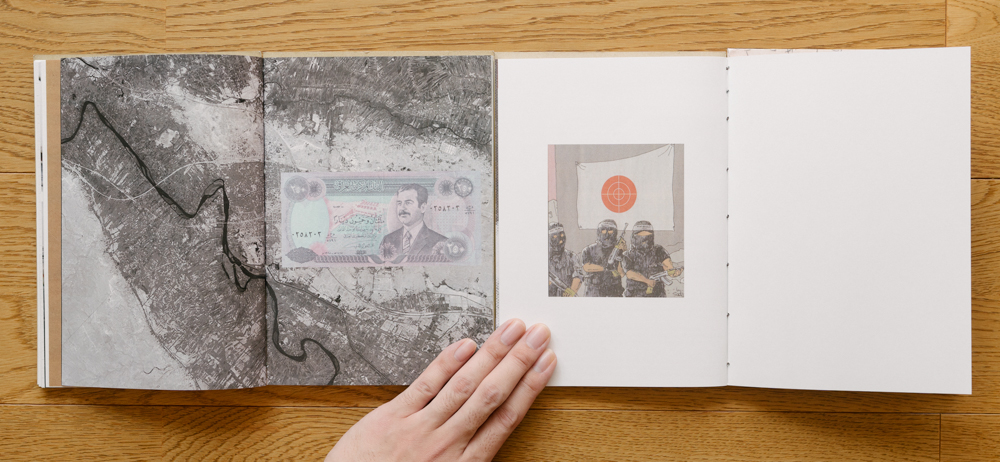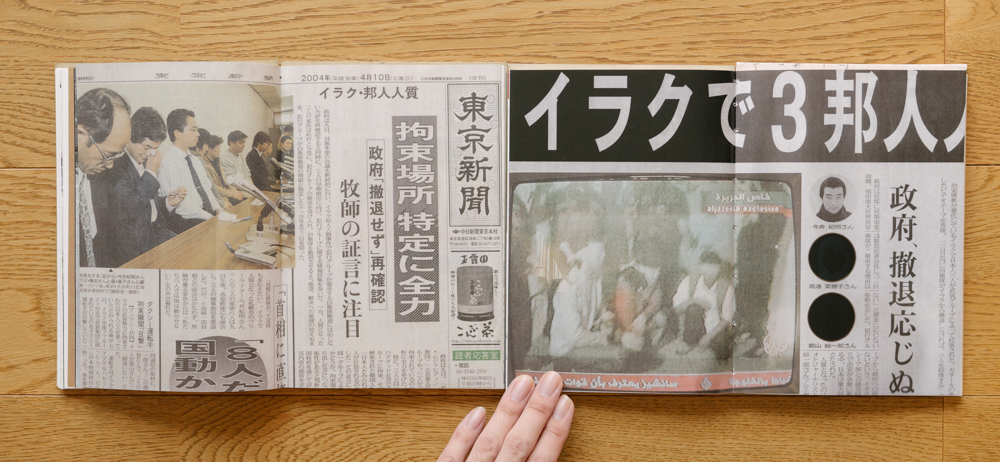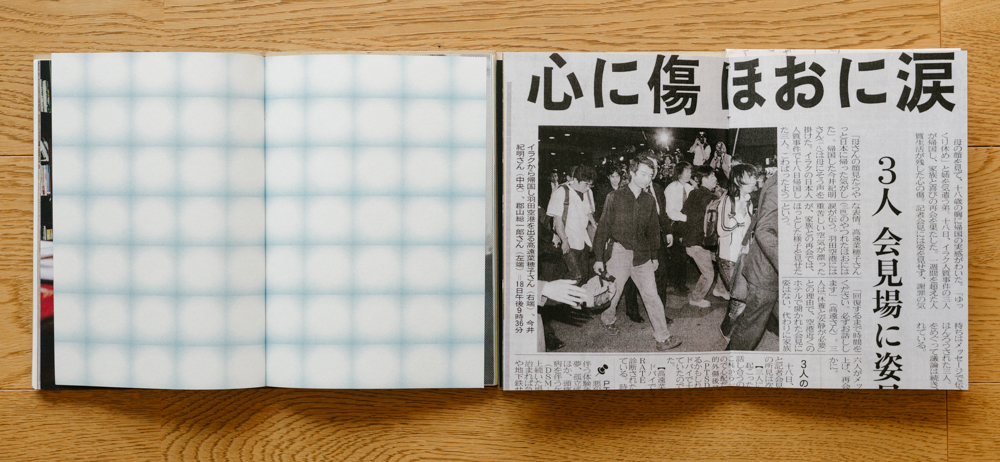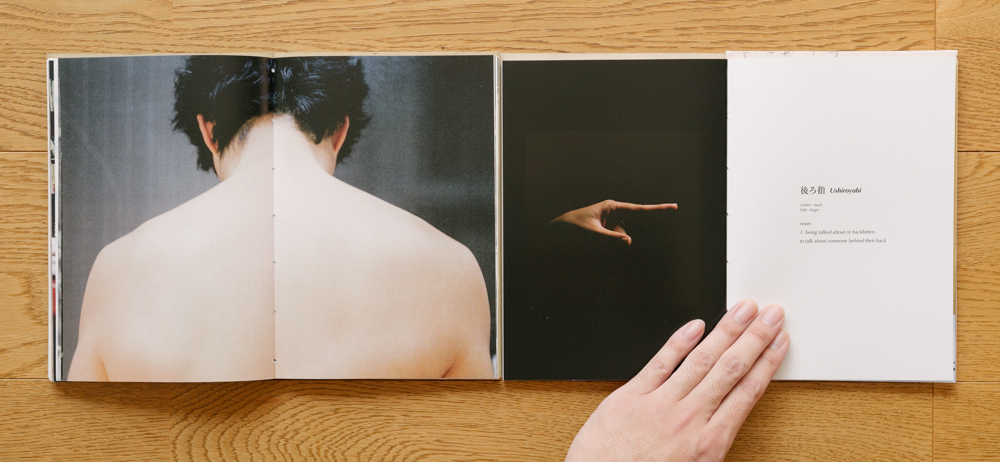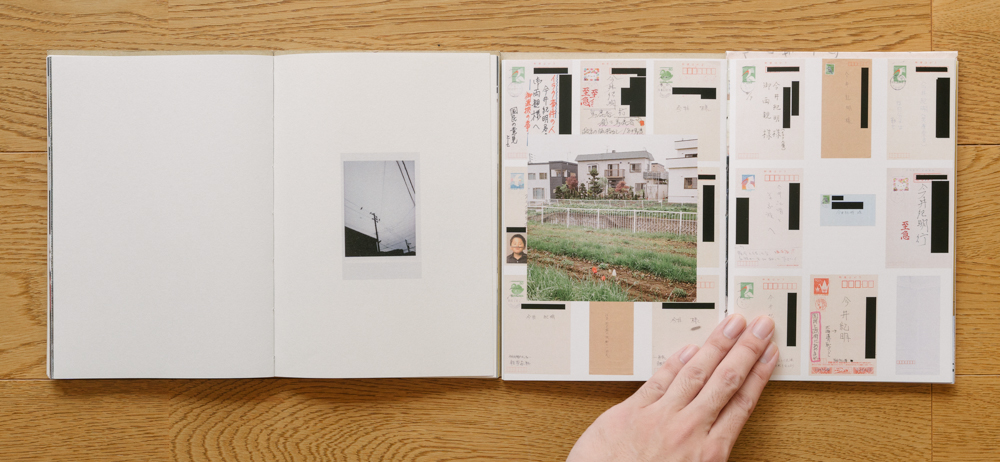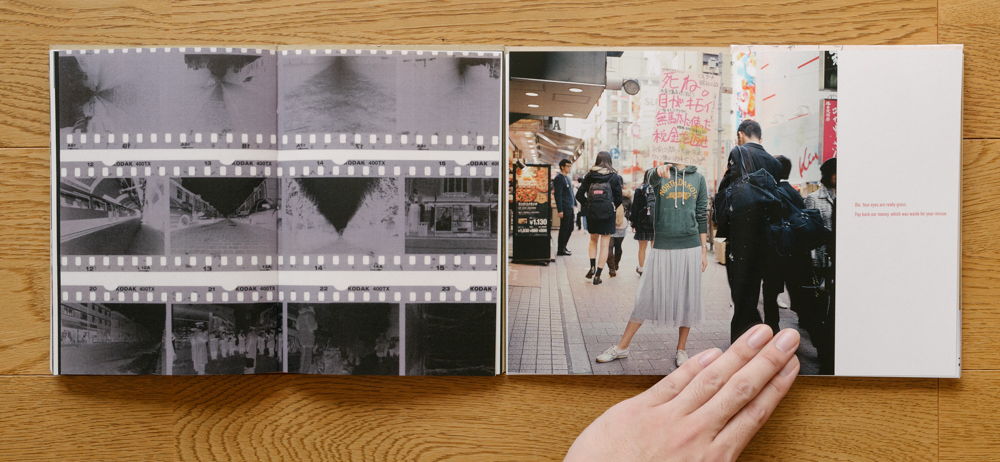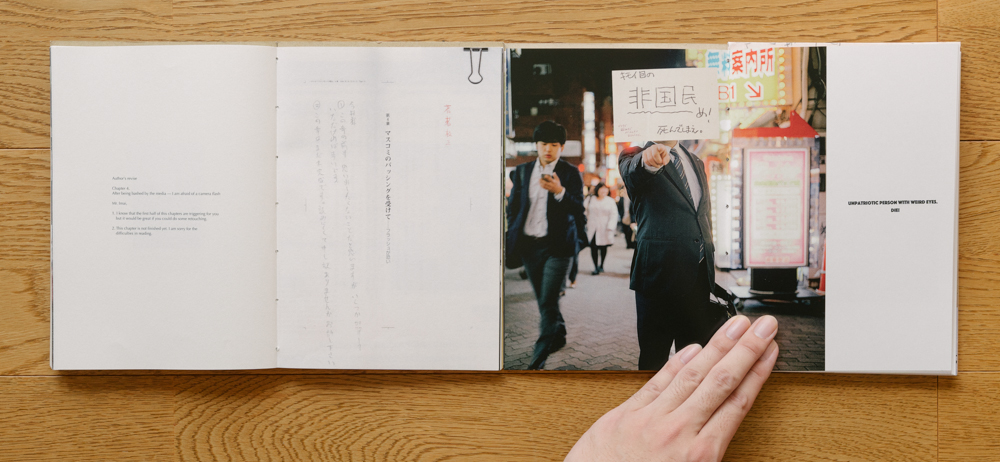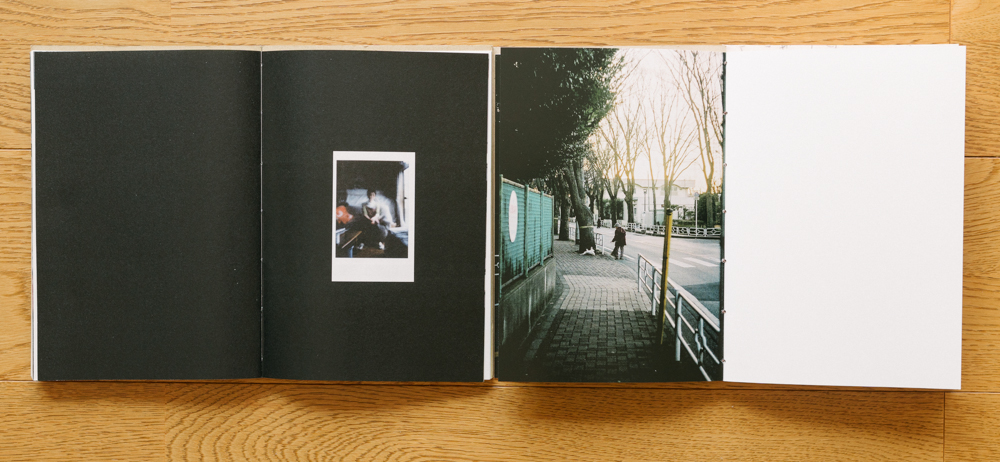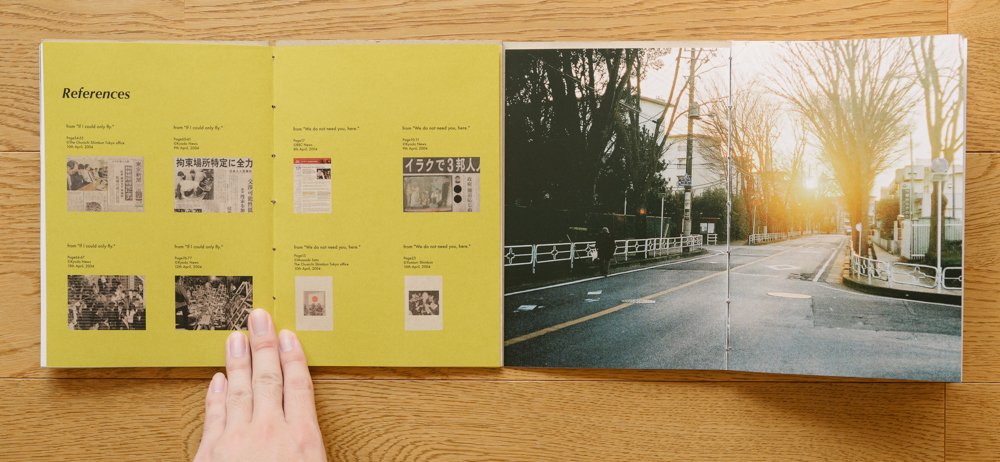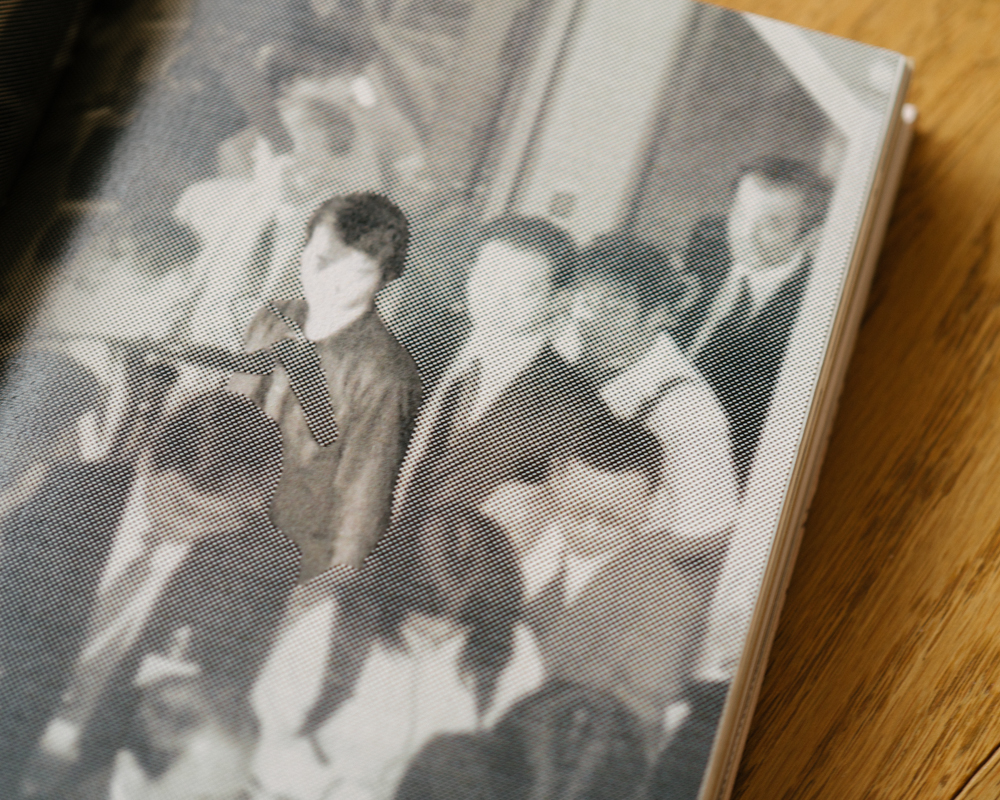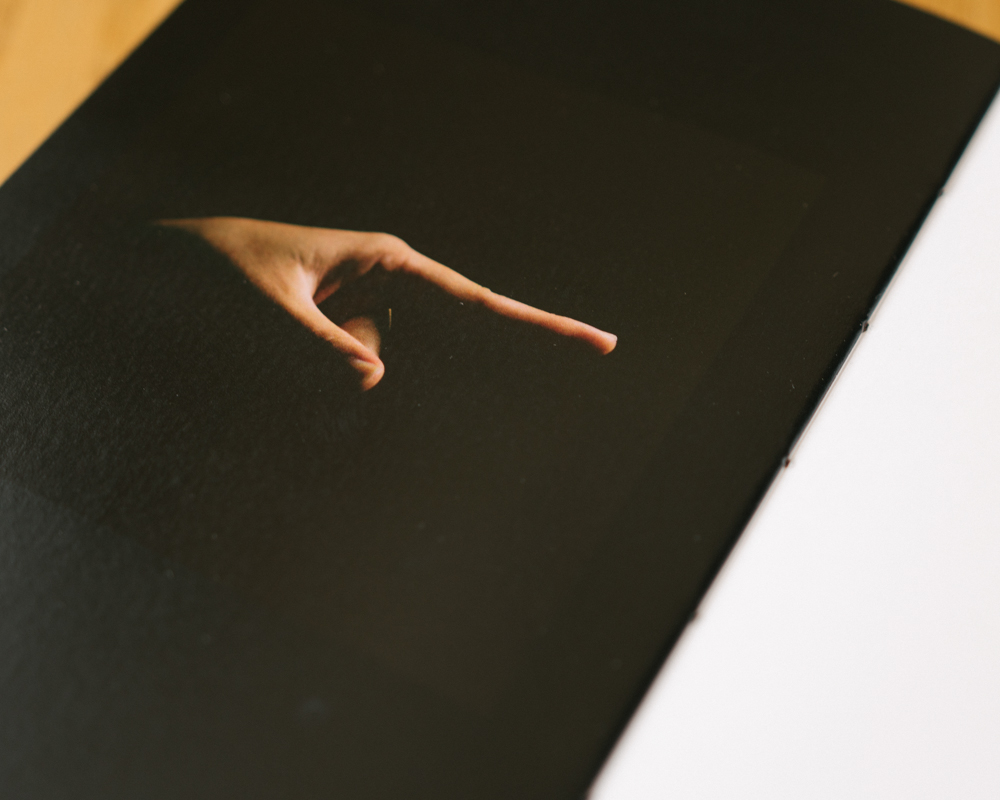HIROSHI OKAMOTO’S ARTIST BOOK “We do not need you, here./ If I could only fly.” ORDER AVAILABLE NOW.
WE_IF_FIN from REMINDERS PHOTOGRAPHY STRONGHOLD on Vimeo.
RPS is now ready to take online orders for Hiroshi OKamoto’s artist book, “We do not need you, here./ If I could only fly.”. Okamoto was one of participants for 2016 photobook masterclass by Sandra van der Doelen, Teun van der Heijden and Yumi Goto, in collaboration with Reminders Photography Stronghold.
This project is the story about intolerance towards others in contemporary Japanese society based on Okamoto’s friend’s personal experience. The book consists of two books with two different points of the view as one book. The right side “We do not need you, here.” is Japanese society’s point of the view to Okamoto’s friend and the left side “If I could only fly.” is Okamoto’s friend’s personal point of the view.
This book is so far shortlisted by following organizations.
– Fiebre Dummy Award (Madrid, 2017)
http://www.fiebrephotobook.com/single-post/2017/03/21/Fiebre-Dummy-Award-2017-10-finalists
– PhotoBoox Award, Photolux Festival (Lucca, 2017)
http://www.ceibaeditions.com/photoboox-award-2017/
– Unseen Photo Fair Dummy Award(Amsterdam, 2017)
https://unseenamsterdam.com/unseen-dummy-award-2017-announcing-shortlist
This project is so far exhibited as selected exhibitions by following festivals and galleries.
– Athens Photo Festival (Athens, 2017)
https://www.photofestival.gr/portfolio/hiroshi-okamoto
– Emon Photo Gallery(Tokyo, 2017)
https://www.emoninc.com/6th-emon-award-exhibition
The project has been selected as the 16th grantee of Reminders Photography Stronghold Grant as well. The project will be exhibited in 2018 at RPS in Tokyo.
https://reminders-project.org/rps/16thrpsgrantee_hiroshiokamoto/
“We do not need you, here./ If I could only fly.”
This project is the story about intolerance towards others in contemporary Japanese society based on my friend’s personal experience.
On April 2004, three Japanese citizens were kidnapped by terrorists at Fallujah in Iraq during Iraq war. One was a photojournalist and one was a NGO worker, another was an eighteen years old teenager volunteer. The eighteen years old boy, Noriaki Imai’s life and my life unexpectedly crossed when we attended same university in Japan in 2009, where we became friends. This is his story.
The terrorists demanded Japanese government to withdraw Japanese self-defense forces from Iraq. The prime minister strongly rejected this demand but somehow, those kidnapped people were peacefully released after eight days. As a result, the three citizens could come back to Japan safely.
However, when those three people returned to Japan, Japanese society completely criticized and harassed them. Mass of people loudly spoke against the kidnapped people and their family. The society claimed that they haven’t taken responsibility for their actions at all, and that they need to apologize to the Japanese government and people in Japan immediately for causing such enormous trouble to a country. Furthermore, people often shouted “Why did our tax money had to be spent on their rescue, when this kidnapping happened because of those foolish three people’s lack of self-responsibility!”
More than one hundred abusive letters were sent to my friend, Noriaki, after his return. However more than 95% of the letters were anonymous. Most of TV shows and newspapers were often furiously reporting about his personal life and his family. In addition, his private information was exposed to the public by mass medias and anonymous online critics. When he was walking in the city, everyone noticed his face and they would literally point fingers at him as “That’s that stupid, unpatriotic kid!” He even got beaten up by a stranger on the street.
Pointing a finger at someone’s back means “backbiting” in Japan. This behavior is deeply rooted into traditional Japanese society and it is one of the iconic mind sets Japanese people have.
Traditionally, Japanese society has been based on various local communities for a long time. And people have lived in their own community side by side helping each other. On the other hand, once a member from the community makes mistakes or causes troubles, immediately, other members will eliminate the person from their community.
When we see a heretic individual, who disturbs the harmony of community, we point at their back.
Sometimes, it is for social justice.
Sometimes, it is for gassing out unfounded hatreds.
And sometimes, it is for something to entertain ourselves with in a mundane everyday life.
You could become the person who points at someone or whom to be pointed at, as long as you are a member of our society.
“We do not need you, here./ If I could only fly.”
Book: 108 pages (Right Side) + 120 pages (Left side)
Images: 48 original images, 104 archival materials
Languages: English and Japanese edition
Size: 215mm x 150mm x 35mm, 835g
Edition Number: 104 editions only (all made to order) all signed and given the edition number by the artist
* The number of edition 104 represents the number of abusive letters, which my friend, Noriaki received from anonymous critics after his return.
Photo / Collage / Edit / Print / Bookbinding : Hiroshi Okamoto
English Translation: Shin Ernest Suenaga
Special Thanks: Noriaki Imai
Price: 15,000 JPY (plus shipping fee)
Concept, edit and art-direction: developed in the 2016 photo book making masterclass by Yumi Goto, Sandra van der Doelen and Teun van der Heijden, in collaboration with Reminders Photography Stronghold.
If you are interested in two copies or more, kindly contact us via email photobook@reminders-project.org


